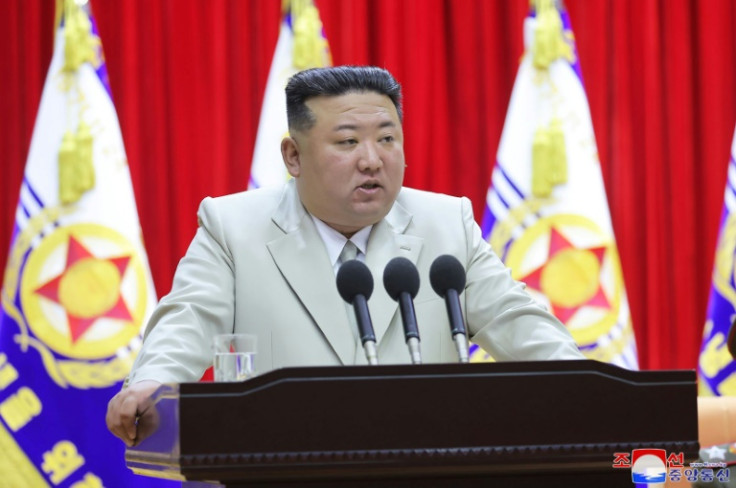Russian Tourists To Be The First Travellers To Visit North Korea Since Covid-19
North Korea imposed one of the world's most stringent lockdowns four years ago.

Months after holding a meeting with Russian President Vladimir Putin, North Korean leader Kim Jong Un has opened North Korea to international tourists since closing the borders due to COVID-19 in May 2020, per reports by local Russian news outlets.
According to Russian news agency TASS, Russian tourists will be among the first to visit North Korea for ski trips since it shut its border due to the pandemic. Several tourists from Russia's far eastern region of Primorye will be travelling to the country's east coast. It is being done under an agreement between the Russian and North Korean authorities.
The agreement came into force after Oleg Kozhemyako, governor of the Primorye region, visited the country last year in December.
The Russians will be visiting popular tourist attractions such as the "Tower of Juche Idea" and a modern ski resort located in Masik Pass. The tower is named after the North's guiding philosophy of "juche" or self-reliance.
Tourists from Russia's Primorye region will be the first ones to fly to Russia. The four-day trip, which has come as a surprise for everyone, is reportedly scheduled for February this year, according to the information available on the tour agency, Vostok Intur's website.
"In (Masik Pass), you will find yourself in a real paradise for winter sports lovers!" reads an excerpt from the information available on the agency's webpage. "Here you will find incredible slopes with different levels of difficulty that will satisfy the needs of both experienced skiers and beginners".
The development comes after North Korean dictator Kim Jong Un met Russian President Vladimir Putin in Vladivostok, Russia, last year. Several reports had then claimed that Putin needed caches of ammunition to sustain his war in Ukraine, while Kim needed food provisions to fight North Korea's food shortage.
North Korea has a population of about 25 million people and has seen several challenges, including a severe food shortage. The pandemic only made the situation even worse, and North Korea has been forced to turn to Russia and China.
Since the start of the Russian war in Ukraine, Moscow and Pyongyang have come closer, but they have maintained that they have not exchanged any arms.
But US officials have claimed that North Korea has supplied ballistic missiles to Russia. Last week, it imposed sanctions on three Russian entities and one individual involved in the alleged transfer. The US government said that Russia deployed the missiles against Ukraine on December 30 and January 2.
"The DPRK's transfer of ballistic missiles to Russia supports Russia's war of aggression, increases the suffering of the Ukrainian people, and undermines the global nonproliferation regime," US Secretary of State Antony Blinken said in a statement on Thursday.
In addition to the current tensions with the US, Kim is also reportedly dealing with a food shortage crisis in the country.
The economic slowdown, border restrictions, and COVID-19 have led to deaths due to starvation in the country. The move to open its borders is described as Kim's attempt to revive the country's economy, devastated by strict lockdowns and US sanctions.
The UN special rapporteur for human rights in North Korea revealed that around 42% of the North Korean population is currently malnourished.
A report by UNICEF, the World Health Organisation, and the World Bank Group released in May claimed that malnutrition due to food shortages is hindering the physical and mental development of North Koreans. It said that around one in six North Korean children under the age of 5 suffers from stunted growth due to malnutrition.
North Korea has gradually started opening up its borders to fight the crises created by the pandemic. A few media reports have claimed that Chinese travellers are also likely to resume their visits to North Korea, which might be able to bring much more revenue for the country. About 90% of its revenues came from Chinese tourists before the pandemic.
© Copyright IBTimes 2025. All rights reserved.






















